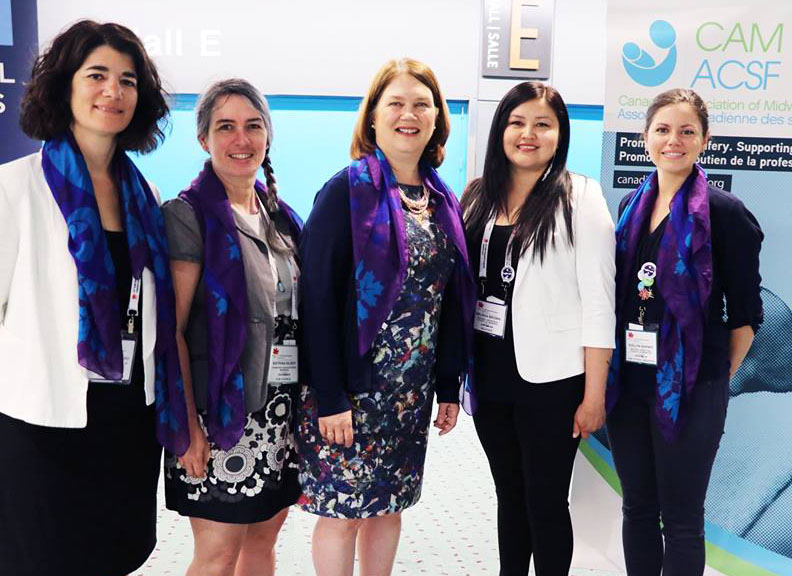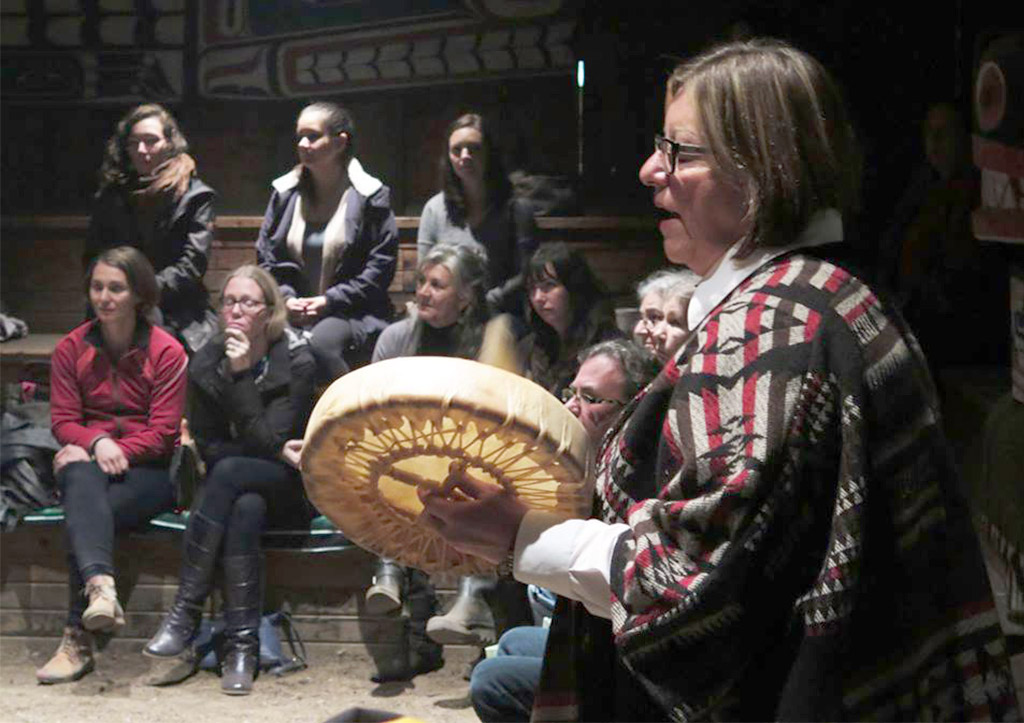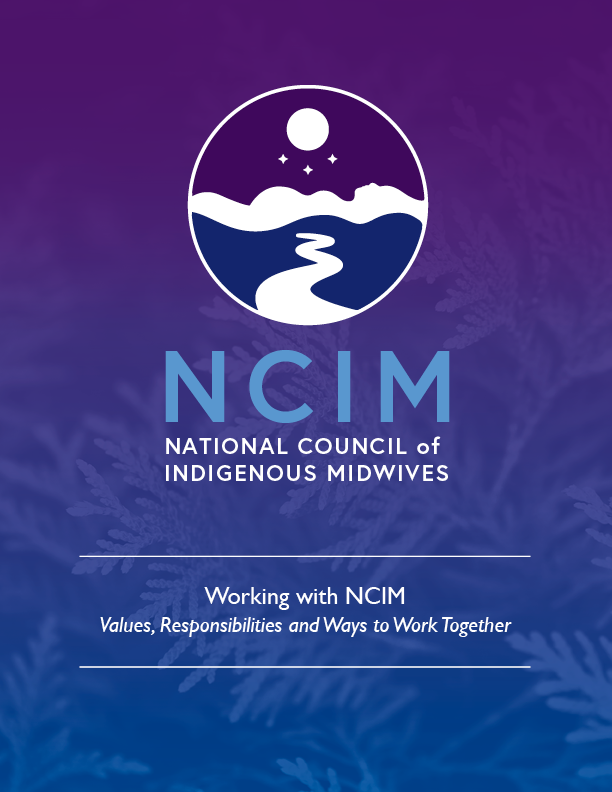NCIM’s vision is to see Indigenous midwives working in every Indigenous community.
To make this vision a reality and uphold the work of our members, we work with communities, Indigenous and non‑Indigenous governing bodies at all levels, organizations and allies. Our relationships are our strength! NCIM strongly encourages government, organizations, and stakeholders to approach us with relevant projects that have the goal of advancing Indigenous health.
WAYS OF WORKING
Working with the National Council of Indigenous Midwives: Values, responsibilities and ways to work together is an essential document for engaging in healthy, supportive, and reconciliatory partnerships with NCIM.
This publication frames what an ideal collaboration with NCIM looks like, both for us and our partners. The document outlines some of the benefits of partnering with us, and the principles of engagement that we expect from partners to ensure that we are advancing the sexual and reproductive health and well‑being of Indigenous communities in a good way. This document also outlines the process for reaching out to NCIM regarding a potential partnership.
CAM is the national organization representing midwives and the profession of midwifery in Canada. CAM is NCIM’s longest standing ally. CAM’s mission is to provide leadership and advocacy for midwifery as a regulated, publicly funded and vital part of the primary maternity care system in all Canadian jurisdictions.
CAM recognizes NCIM as the national voice of Indigenous midwifery and supports NCIM’s work. The relationship has been cultivated since 2002 and has become a powerful example of reconciliation. The relationship between CAM and NCIM is mutually beneficial and important to both organizations. Since 2002, CAM and NCIM have worked jointly on several key Federal advocacy pieces all with the aim of advancing the profession of midwifery in Canada.
CAM’s Annual General Meeting on June 18, 2017 in Toronto was a historic moment in CAM and NCIM’s history, as we signed a Memorandum of Understanding.




